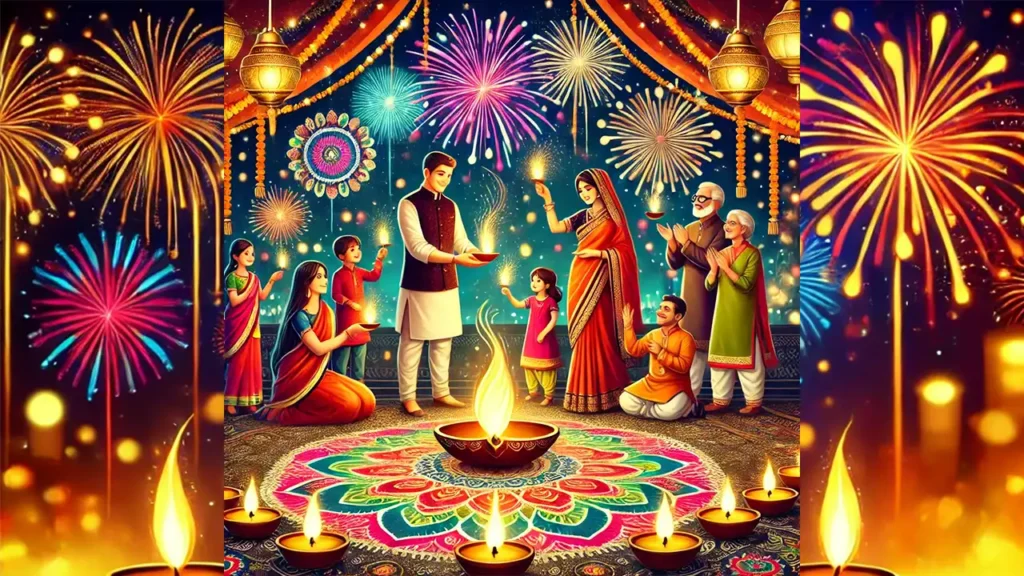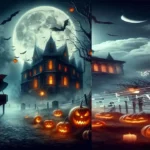Discover the Magic of Diwali: India’s Grand Festival of Lights
Do you Know What is Diwali? Diwali, also known as Deepavali, is one of the most important festivals in Hindu culture. It is widely known as the “Festival of Lights,” celebrated with great enthusiasm and grandeur across India and among Indian communities around the world. The word “Diwali” comes from the Sanskrit word “Deepavali,” which means “a row of lights.” This festival symbolizes the triumph of light over darkness, good over evil, and knowledge over ignorance. People celebrate by lighting oil lamps called diyas, bursting fireworks, decorating their homes, and sharing sweets.
What Is Diwali Also Known As?
Diwali is often referred to as “Deepavali,” especially in southern India. The festival’s name can vary slightly depending on the region and language spoken. However, no matter what it is called, the significance remains the same—a celebration of light and the triumph of good.
What Is Diwali in India?
In India, Diwali is a national festival that spans five days of celebration. It typically starts with Dhanteras, followed by Naraka Chaturdashi (Choti Diwali), Diwali itself, Govardhan Puja, and ends with Bhai Dooj. Homes are cleaned and decorated with beautiful rangoli designs, which are intricate patterns made from colored powders, flowers, or rice. The streets are lit up with diyas, electric lights, and vibrant decorations. People wear new clothes, offer prayers to deities, and exchange gifts with family and friends.
Diwali Story: The Legend Behind the Festival
Diwali has several stories associated with it, depending on the region and religion. One of the most popular legends is from the Hindu epic, the Ramayana. It tells the story of Lord Rama, who returned to his kingdom, Ayodhya, after 14 years of exile and defeating the demon king Ravana. The people of Ayodhya celebrated his return by lighting lamps and decorating the city, which is believed to be the origin of the festival of lights.
In other regions, Diwali marks the victory of Lord Krishna over the demon Narakasura. For Jains, Diwali signifies the nirvana or liberation of Lord Mahavira. Sikhs celebrate Diwali to commemorate the release of Guru Hargobind Ji from imprisonment.
What Is Diwali for Kids?
For kids, Diwali is a magical time filled with fun and excitement. They enjoy making colorful rangolis, lighting sparklers, wearing new clothes, and eating sweets like laddoos and jalebis. Diwali is also a time for family bonding and learning about the importance of good values, as children hear stories of heroism, kindness, and the power of light over darkness.
Who Celebrates Diwali?
Diwali is mainly celebrated by Hindus, Jains, Sikhs, and Buddhists (especially in Nepal). In Hinduism, it honors the return of Lord Rama to Ayodhya or Lord Krishna’s victory. In Jainism, it marks Lord Mahavira’s nirvana. Sikhs celebrate the release of Guru Hargobind Ji, and Buddhists (in Nepal) associate it with King Ashoka’s adoption of Buddhism.
10 Points About Diwali
- Diwali is celebrated over five days.
- It symbolizes light’s victory over darkness.
- It is known as the Festival of Lights.
- Diwali is celebrated with diyas, rangolis, and fireworks.
- Families exchange sweets and gifts.
- People clean and decorate their homes.
- The festival includes prayers to Lakshmi, the goddess of wealth.
- The celebration marks the new Hindu financial year.
- Diwali is a public holiday in India and many other countries.
- It unites people from different religions and regions.
What Is Diwali Food?
The food is one of the most delightful parts of Diwali! Traditional sweets like laddoos, barfis, and jalebis are served alongside savory snacks like samosas and kachoris. Many families prepare a lavish feast that includes puris, curries, and special rice dishes. The variety and richness of Diwali foods reflect the spirit of joy and abundance.
About Diwali in English
Diwali is a festival that transcends religious and regional boundaries. Though rooted in Hindu tradition, its universal themes of light, hope, and togetherness make it a beloved celebration for many. The festival is a time for introspection, forgiveness, and sharing happiness.
What Is Diwali Festival?
The Diwali festival is all about celebrating the victory of good over evil. It involves cleaning homes, wearing new clothes, performing religious rituals, and gathering with loved ones to light diyas, burst fireworks, and enjoy traditional foods. People also pray to Goddess Lakshmi for prosperity and Lord Ganesha for wisdom and good fortune in the coming year.
What Is Diwali Date 2024?
In 2024, Diwali will be celebrated on Sunday, November 3. The date of Diwali changes each year according to the Hindu lunar calendar, but it usually falls in October or November.
What Is Diwali in Hindi?
In Hindi, Diwali is written as “दिवाली” or “दीपावली.” It is one of the most widely spoken languages in India, and most Hindi speakers refer to the festival as Diwali.
What Is Diwali Celebrated For?
Diwali is celebrated to honor various legends of victory—such as Lord Rama’s return to Ayodhya, Lord Krishna’s triumph, or Mahavira’s nirvana. The common thread is the celebration of light, goodness, and the defeat of darkness or ignorance.
What Is Diwali Padwa?
Diwali Padwa, also known as Govardhan Puja, is the fourth day of the Diwali celebration. It marks the day when Lord Krishna defeated Indra by lifting the Govardhan Hill to protect the people from heavy rains. In some parts of India, this day is celebrated as the new year for certain Hindu communities.
What Is Diwali Balipratipada?
Diwali Balipratipada is the fifth day of Diwali and celebrates the victory of Lord Vishnu in his Vamana avatar over the demon king Bali. On this day, Bali is believed to visit the earth to bless his people, and prayers are offered to him.
What Is Diwali in Hinduism?
In Hinduism, Diwali is one of the most sacred festivals. It is associated with numerous deities, including Lord Rama, Lord Krishna, Goddess Lakshmi, and Lord Ganesha. The rituals and stories vary, but the core essence of the festival remains the same: light triumphs over darkness.
What Diwali Means
Diwali means much more than just lighting lamps and bursting crackers. It is a reminder of the importance of goodness, knowledge, and family. It encourages people to reflect on their actions and embrace positivity, kindness, and gratitude.
FAQs About Diwali
Q1: Why is Diwali called the Festival of Lights?
A: Diwali is called the Festival of Lights because people celebrate by lighting oil lamps (diyas) to symbolize the victory of light over darkness.
Q2: Who celebrates Diwali?
A: Diwali is celebrated by Hindus, Jains, Sikhs, and some Buddhists, particularly in Nepal.
Q3: What food is eaten during Diwali?
A: Traditional Diwali foods include sweets like laddoos, barfis, and savory items like samosas and kachoris.
Q4: What is the significance of Diwali?
A: Diwali signifies the triumph of good over evil, light over darkness, and knowledge over ignorance.
Q5: When is Diwali 2024?
A: Diwali will be celebrated on November 3, 2024.



